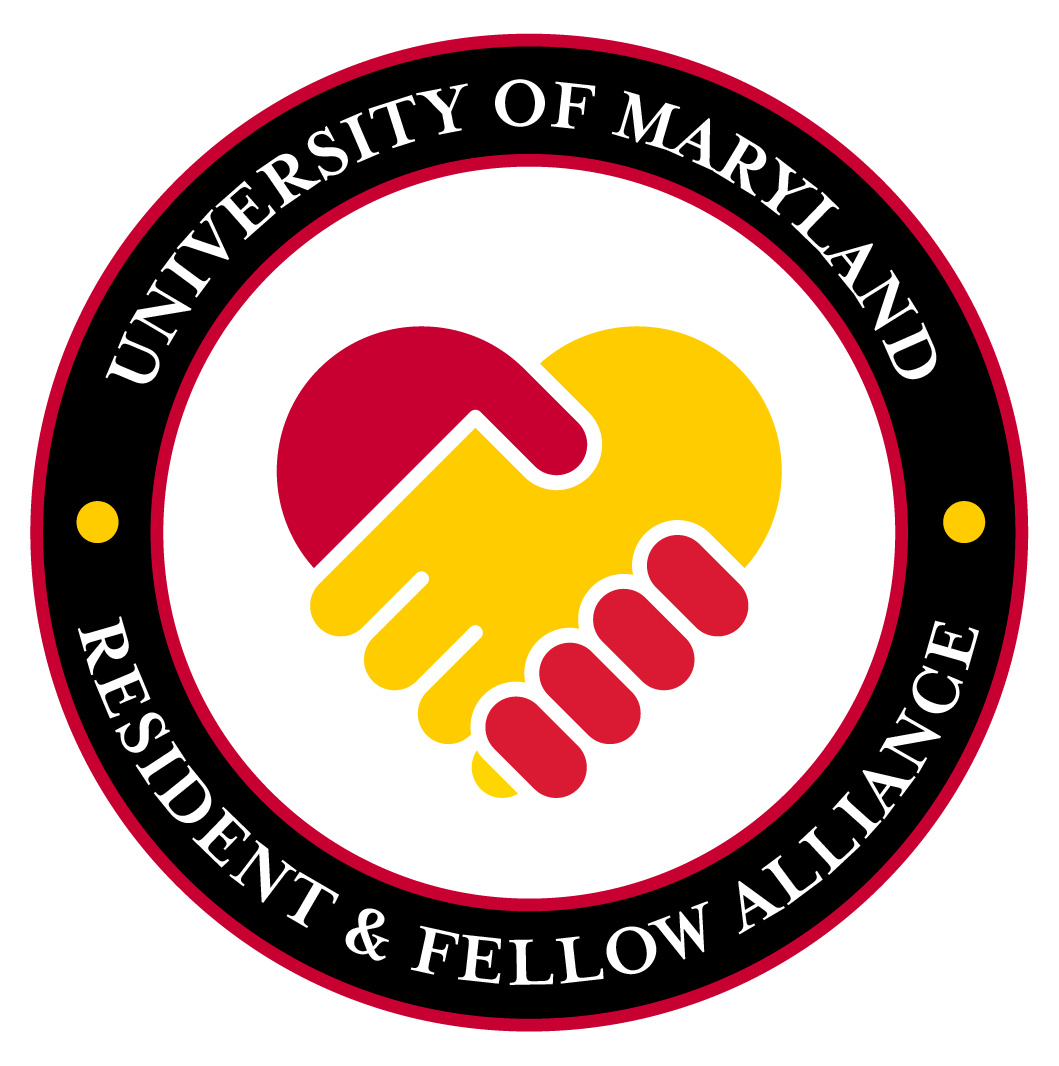We are the union of 900+ resident and fellow physicians working across multiple locations in more than 60 specialties/programs at UMMC. Our union is only as strong as our members—being a member will add to our collective strength, help us stand up to UMMC, and allow you to have a say in what we do with this power. A strong, united membership gives us the power to enforce our new union contract and win what we’re fighting for in future bargaining.
Union 101
-
Union = an organized group of coworkers advocating to improve their working conditions through contract negotiations and collective actions.
Forming a union is the only way to negotiate a legally binding contract with hospital management that ensures housestaff have a voice in their employment.
Workers coming together through their union have much more power negotiating with employers than if everyone were on their own.
Unions are democratically run. Decisions are made by officers who are elected by union members.
Our union empowers residents and fellows to fight for excellence for our patients, our training, and our healthcare system through organizing, collective bargaining, and advocacy.
-
Union members elect union leaders who then meet with hospital leadership to bargain over pay, working conditions, and benefits for all housestaff.
During these bargaining sessions, our union and UMMC leaders work to form a new contract for housestaff.
At UMMC, we have sent out several questionnaires to the residents and fellows to get input and learn what issues are most important to you.
Once a union contract is in place, our union leverages its power to ensure the contract is enforced and that any housestaff or systemic issues are addressed with UMMC.
-
Collective bargaining = the process during which union leadership meets and negotiates with our employer about wages, benefits, working conditions, and any other issues the union deems important to them.
Goal of bargaining = solve workplace problems by developing a contract that will be voted on by membership.
After a first contract is approved, our union will continue to advocate for housestaff when renegotiating future contracts.
-
CBA = a formal written agreement (aka contract) over wages, hours, and conditions of employment entered into by an employer and the union representing employees in the bargaining unit.
-
Yes, you do! The contract formed by our union leaders and UMMC leadership doesn’t become official until it is voted on and approved by a majority of union members.
If you are not a union member, you cannot vote for or against the contract.
If having a say sounds good to you, learn more about membership and sign up!
-
Grievance = a formal complaint filed by a union member or the union itself, alleging that the employer has:
Violated the written terms of the collective bargaining agreement (aka our contract). This is referred to as the “letter of contract.
This can be matters of interpretation or application.
Violated the just cause standard—the procedures an employer must observe when disciplining or firing an employee—the union can file a grievance
